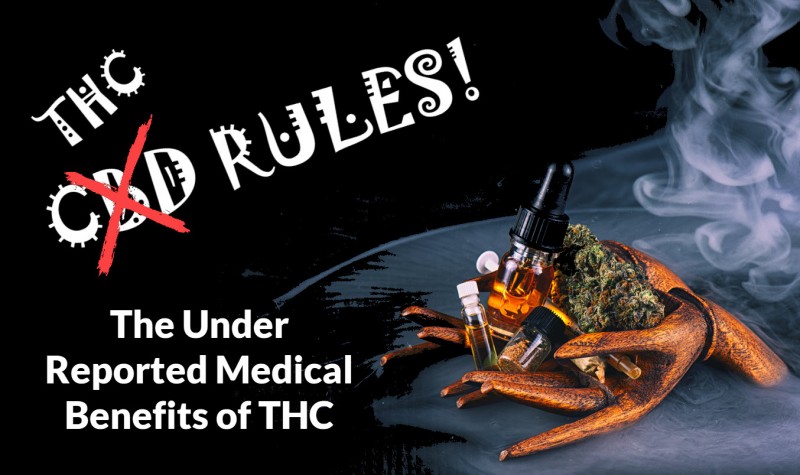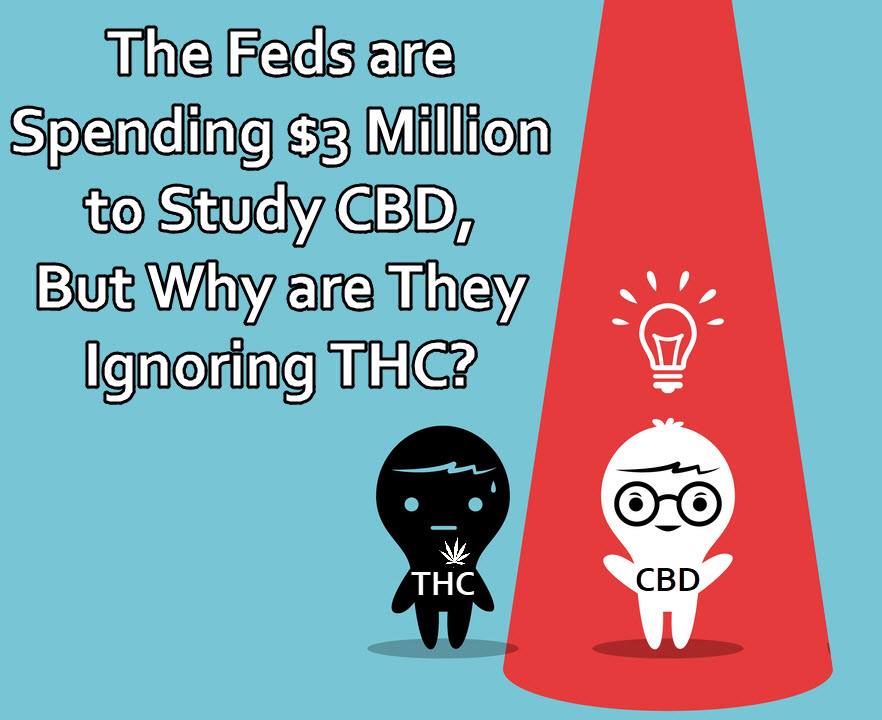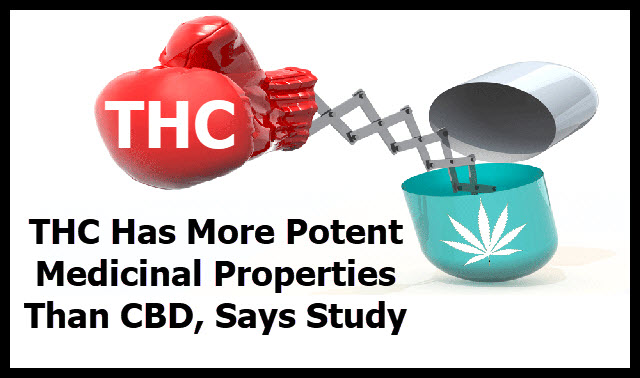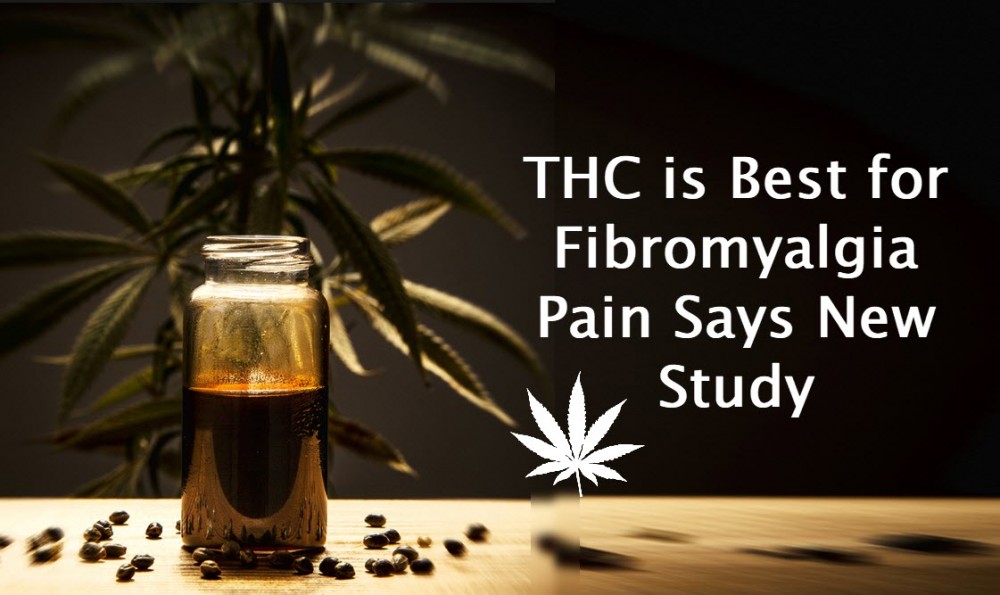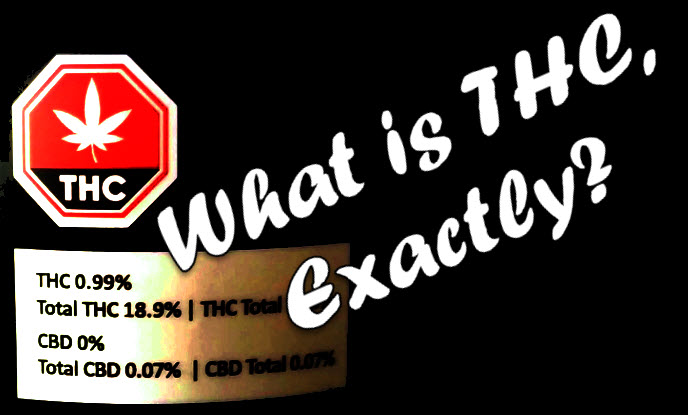The Medical Benefits of THC are Under Reported
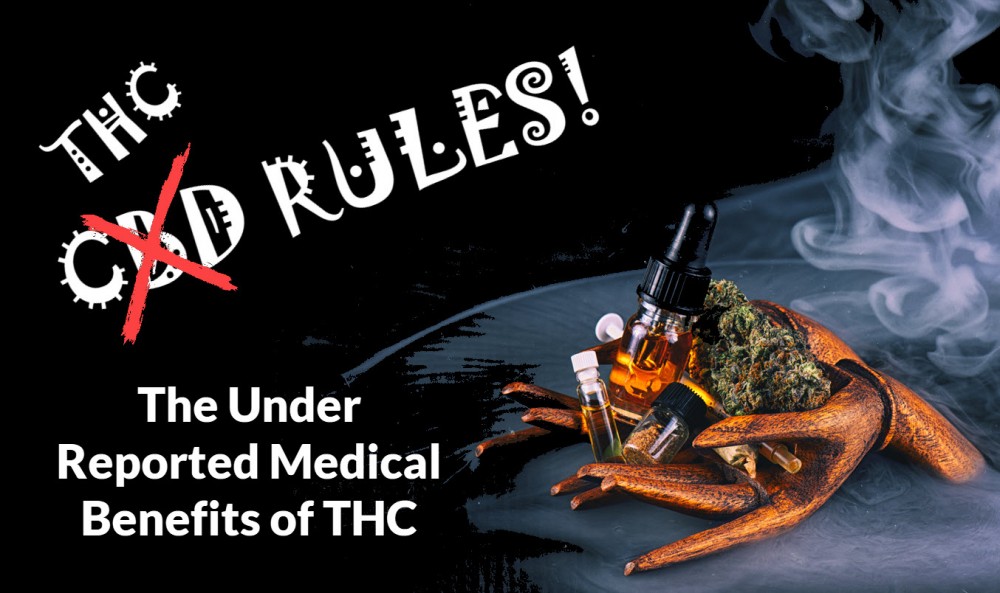
Since the 2018 Hemp bill passed in the United States, research into cannabinoids such as CBD increased significantly, while research into THC remained relatively the same – that is, not nearly enough. These days, we seem to see new medical discoveries relating to Cannabidiol, while THC or Tetrahydrocannabinol, seems to receive more negative press.
There are numerous reasons why the media demonizes THC so much, however, the most prominent argument relates to its psychoactive nature when applying heat. This produces a sense of euphoria in consumers and as a result creates conflict within mainstream health.
This is a strange occurrence considering that medicine should technically make you feel better. Euphoria, as a standalone concept, is the very definition of “feeling better”, yet when you mix the idea of euphoria with recovery – there seems to be a disconnect in the medical field.
Not to mention, that high potency THC may trigger psychotic episodes in people who have a predisposition towards psychological disorders such as Schizophrenia. However, the link between psychotic episodes and THC are still not very well established and thus people should not assume that THC causes psychosis. In the vast majority of cannabis users, there will never be a psychotic episode presented due to the consumption of THC.
Nonetheless, the mere fact that there is a “potential link” has resulted in THC receiving more negative reporting than CBD, and thus people conclude that CBD is the “medical cannabinoid”.
The fact of the matter is that our current understanding of cannabinoids and the interactions between our own organisms are still quite limited.
Today, we’ll be taking a closer look at the specific medical benefits of THC.
Pain Relief and Muscle Relaxant
In a study published in the American Journal of Pain, researchers found that when patients were administered low doses of THC, they saw 30% pain reduction than when compared to the control group who received a placebo.
“The analgesia obtained from a low dose of delta-9-tetrahydrocannabinol (1.29%) in patients, most of whom were experiencing neuropathic pain despite conventional treatments, is a clinically significant outcome. In general, the effect sizes on cognitive testing were consistent with this minimal dose. As a result, one might not anticipate a significant impact on daily functioning.” - Study
Easing of Vomiting and Nausea
One of the oldest known medical benefits of THC relates to nausea. In fact, this was one of the primary reasons why cannabis was legalized in 1997 in California. Since the 1980s, the drug Marinol has been approved by the FDA, which is a synthetic version of THC. Unlike THC from the plant, that comes with other phytocannabinoids, Marinol can have some adverse effects.
THC, deriving from the cannabis plant, is infinitely better at easing these symptoms than Marinol. Nonetheless, the FDA did approve Marinol which subsequentially validates the effectiveness of THC in treating vomiting and nausea symptoms.
Brain Cell Growth and Protection
A less known medical benefit of THC is that it can help protect people from Traumatic Head Injuries. A Reuters article summarizes the findings from a study of patients treated at Harbor-UCLA Medical Center in Torrence. They found that people who tested positive for THC were 80% less likely to die from traumatic head injuries than those who tested negative for the cannabinoid.
Of course, this is still preliminary data, however, there have been subsequent studies that delivered similar results.
Helps Treating PTSD
While THC might increase anxiety in some users, its effects on symptoms of PTSD is well established. It can help reduce flashbacks, agitation, depression, severe anxiety, insomnia, nightmares, and social isolation.
While it’s not 100% understood how THC does this, some believe that the euphoric nature of the cannabinoid might play a role in allowing the patient to “break from negative patterns”. Similar studies have been conducted with psilocybin, the active ingredient in Magic Mushrooms.
PTSD relates to a negative feedback loop where a patient “relives” the traumatic event repeatedly. THC may interrupt this process allowing the patient to form new neural pathways allowing them to literally break the cycle. More research is still warranted, however, preliminary results seem very promising.
THC is an Antioxidant
THC may play a role in keeping you young. THC and other cannabinoids contain potent antioxidants, which can help reduce stress, protect you from UVB rays which increases the protection on the skin. Interestingly, the skin is an organ that seems to have an endocannabinoid system of its own. Thus, THC and other cannabinoids can be applied topically for medical effect against sunburns and other skin disorders.
Considering that THC is also an anti-bacterial, it makes sense that it can assist with skin recovery and promoting epidermal health.
Conclusion
It’s important to remember that THC is also a highly beneficial compound. While many companies are pushing the CBD agenda, considering that it’s a $50 billion dollar industry, CBD actually works better when used in tandem with THC. Most patients find that a 1:1 ratio provides the best therapeutic benefits.
THC MEDICAL PROPERTIES, READ THIS..
WHY IS MEDICAL THC NOT BEING STUDIED, CLICK HERE.
OR..
THC MAY BE MORE POTENT AS MEDICINE, CLICK HERE.
OR..
THC FOR FIBROMYALGIA PAIN IS BEST, CLICK HERE.
